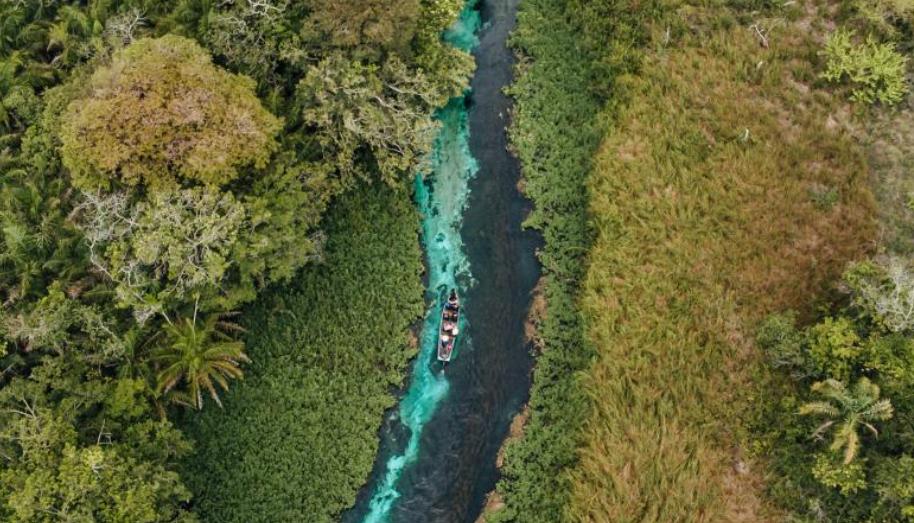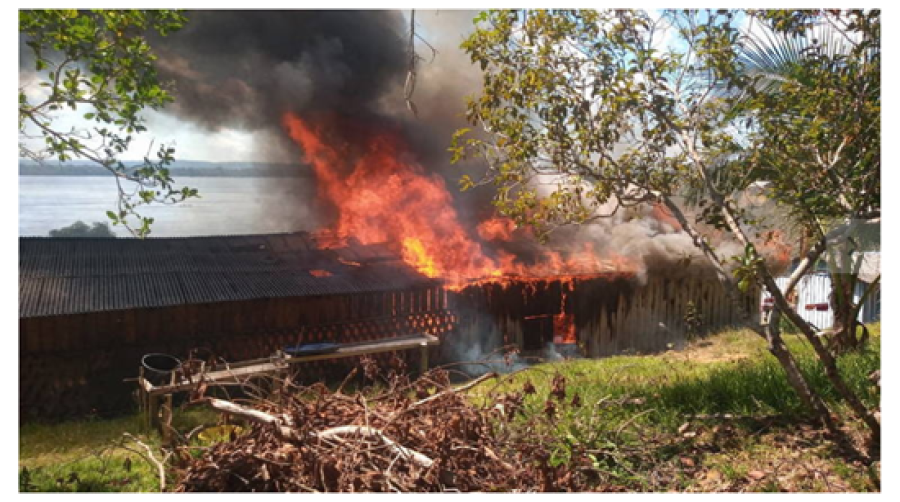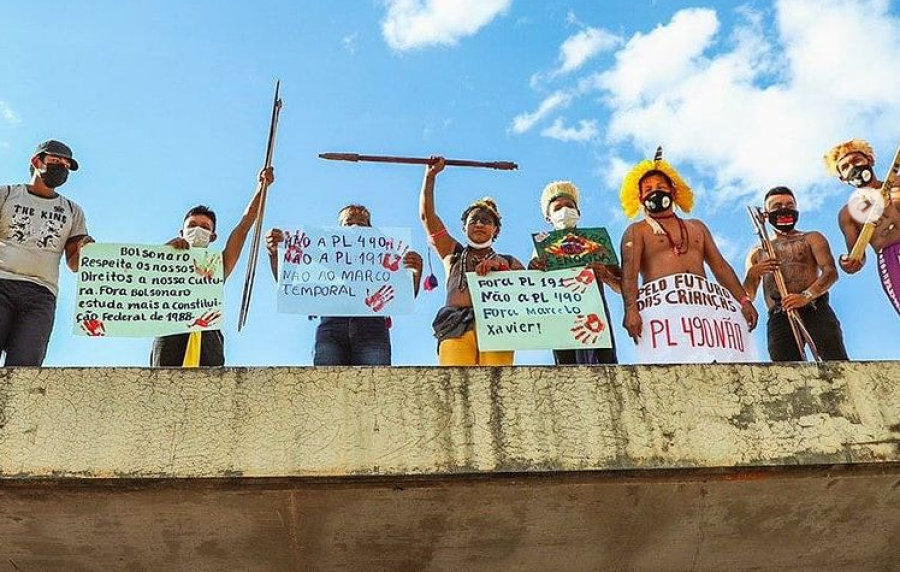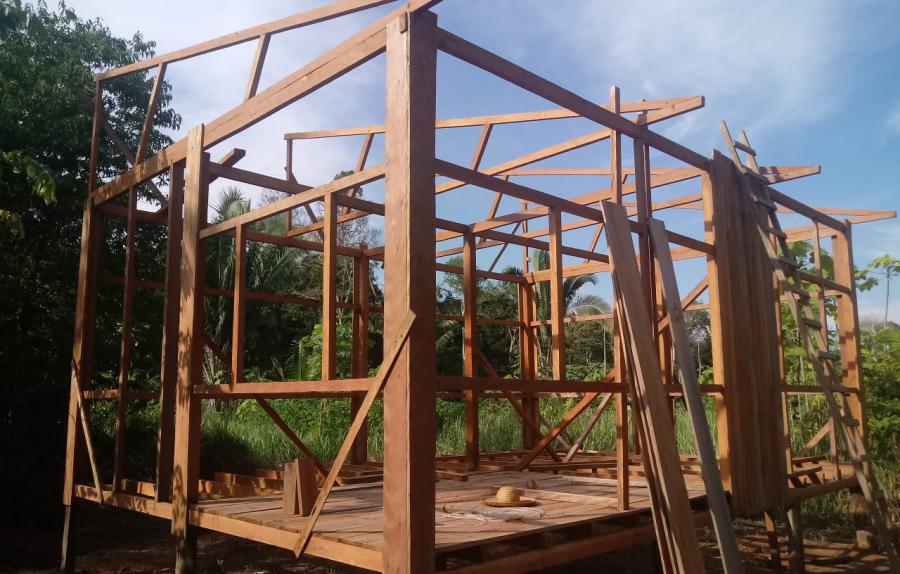
Content Note: The following includes disturbing information on violence against Indigenous Peoples.
In November 2023, the University of California Network for Human Rights and Digital Fact-finding of the University of California, in partnership with Cultural Survival, published a Story Map on Indigenous land defenders who have been killed in Brazil.
The first part of the report profiles 13 Indigenous leaders and land defenders from seven regions in Brazil killed between 2019-2022. The second section includes additional information on the seven Brazilian states in which the defenders were killed–Amapá, Amazonas, Bahia, Maranhão, Mato Grosso, and Mato Grosso do Sul–and six other states that were identified as emerging sites of concern for possible threats and targeting of Indigenous land defenders: Acre, Pará, Paraná, Rio Grande do Sul, Rondônia, and Roraima.
Taken together, the individual defender profiles and information about select regions paint a picture of how and why these killings of Indigenous defenders have occurred. More importantly, they link each defender to their territory, acknowledging their interconnection.
The 13 lives and deaths portrayed in this report are unfortunately only a small glimpse into the larger crisis of hundreds of killings and murders of Indigenous Peoples in Brazil and reflect a deeper systemic issue. The gaps these defenders leave in their communities and the world cannot be filled, as they keep alive critical knowledge for protecting our ecosystems and relating to one another. This report memorializes and honors the 13 portrayed and every Indigenous defender killed. Many were active in their pursuit of defending their lands and communities, illustrating the deep physical, spiritual, and historical links between Indigenous land defenders and their territories. All had the right to live their lives in peace and dignity.
Edson Krenak(Krenak), Cultural Survival Advocacy Coordinator, shares his thoughts about the project.
“This Story Map is not only stories of death but of hope. Documenting loss, struggle, and violence can make our work more important for those who are still fighting…”
Working at Cultural Survival, the voices of the past echo loudly in some projects. Documenting stories of loss, murders, and violence hits close to home in every word typed, every profile sketched, and every story told. This was my experience working on the Brazil Story Map with the UC Network for Human Rights and Digital Fact-finding of the University of California.
Delving into the stories of our fallen defenders, leaders who stood their ground to protect our sacred territories against the insatiable hunger of profit-seekers, is tough. Our strength is challenged every moment, especially when the fallen are kids, youth, those we raise to walk our path, and those we teach to follow our ancestors.
Every morning, I would scroll through endless pages of news articles, scanning for the truth, the reality that mainstream media often masks or distorts. Images of deforestation of our sacred rivers polluted constantly remind me of the urgency of our work. Yet it’s the faces of the 13 leaders whose profiles we have highlighted, the heroes from my own land, who haunt my every thought. Some of them I knew personally. Their laughter, stories, and the fire in their eyes still linger in my memories. The weight of their loss sits heavily on my chest. But this pain is not our enemy. It does not mean to take us down altogether, but it is a fuel that ignites us every day to fight for them, with them.
Working close to communities other than our own reveals how kindred in spirit we, Indigenous Peoples, are in a bond that remains unbroken. Every tear shed is accompanied by a determination to preserve the legacy of those who fight on the frontlines of the climate crisis, deforestation, mining, and agroindustry.
If the spirit of our communities is our strength, our partners, friends, and fellow researchers bring us hope. Hope that one day, colonialism, violence, and fear will be part of a remote past. We believe that we are writing a new history of the relationship between Indigenous and non-Indigenous people because we are all children of the same Mother Earth.
We are, therefore, grateful to the young students, passionate about our cause and tirelessly working on this map, and professors from the University of California who stand by our side, weaving technology into our narrative, offering glimpses of the environmental scars we bear, but with solidarity, they are strengthening our bond and reaffirming the commitment that research and sciences can be our allies.
Collaborating with allies has taught me that our story resonates beyond our borders. It's not just an Indigenous issue; it's a fellowship against adversity, catastrophe, and fear. Our aspirations are simple – to live in harmony with nature, to protect the land that nourishes us, and to pass on our heritage to the generations yet unborn.
The pain of loss is immense, but so is our hope because we do not walk alone. Our stories are stories of many. Every profile, every story shared, brings us one step closer to justice. As we document the struggles and aspirations of our Peoples, I am reminded of our collective power. Together, we shall reclaim our lands, rights, and dignity - our self-determination.



